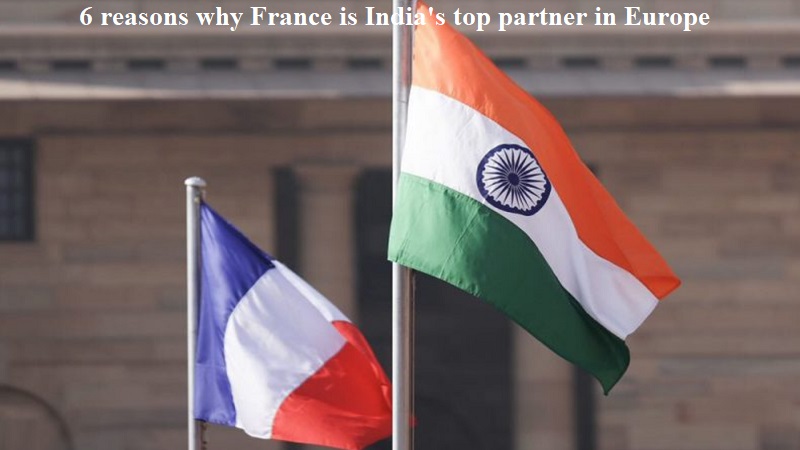
Indian Prime Minister Narendra Modi’s visit to France to attend the Bastille Day parade is a significant milestone in the deepening relationship between India and France. This is the second time that an Indian leader has been invited as the ‘Guest of Honour’ to the parade, which holds great importance in the French national calendar.
While the visit provides an opportunity for PM Narendra Modi and French President Emmanuel Macron to discuss various bilateral matters such as defense, trade, and investment, it also celebrates the historical and cultural ties between the two nations.
The India-France relationship has been steadily strengthening in recent years, with collaboration in areas including defense, trade, and climate action. The strategic partnership between the two countries is now celebrating its 25th anniversary, which was initiated during the visit of former French President Jacques Chirac to India in 1998.
One of the key factors that unite these two democracies is their shared commitment to promoting a multipolar world and upholding multilateralism and international law.
As the India-France partnership enters a new phase, here are six reasons why France is India’s top partner in Europe:
- Historical ties: The participation of the Indian tri-services contingent in this year’s Bastille Day parade highlights the long-standing affiliation and bond between the two countries’ armies. Over 1.3 million Indian soldiers, including those from French India, participated in World War I, fighting alongside French troops. The Indian Memorial in northern France commemorates the sacrifices of Indian soldiers during the war.
- Defense partnership: France has been a reliable partner for India in the defense sector since the 1950s. From the procurement of the Dassault Ouragan fighter to the recent submarine and Rafale-M deal, defense cooperation has become a crucial aspect of the India-France relationship. The Dassault Mirage 2000s have played a vital role in the Indian Air Force’s operations, including the airstrikes during the Kargil war and in Balakot.
- Support for India’s interests: France stood firmly with India during the Pokhran nuclear tests in 1998, defying international sanctions. They were among the first countries to sign a civil nuclear pact with India. France has consistently supported India’s bid for a permanent seat on the UNSC and its accession to the NSG. They have also condemned terrorism and pledged to work towards the adoption of the CCIT.
- Strategic ties: Both India and France value strategic autonomy and respect for the sovereignty of nations. They have established an Indo-Pacific trilateral framework to enhance strategic cooperation and address challenges posed by China. France’s leadership in the multilateral exercise ‘La Pérouse’ with Quad countries in the Indian Ocean region demonstrates their shared concerns regarding China’s influence.
- Economic cooperation: France is a significant investor in India, with numerous French businesses operating in the country. Bilateral trade between the two nations is valued at EUR 10.7 billion, and the signing of the FTA would further boost trade relations.
- Climate cooperation: India and France have partnered to combat climate change and promote renewable energy through initiatives like the International Solar Alliance. This treaty-based organization facilitates international cooperation and investments for a sustainable and carbon-neutral future.
Overall, the visit of PM Narendra Modi to France signifies the strong and multi-faceted partnership between India and France, characterized by historical ties, defense cooperation, shared interests, strategic collaboration, economic engagement, and climate cooperation.

Post Your Comments